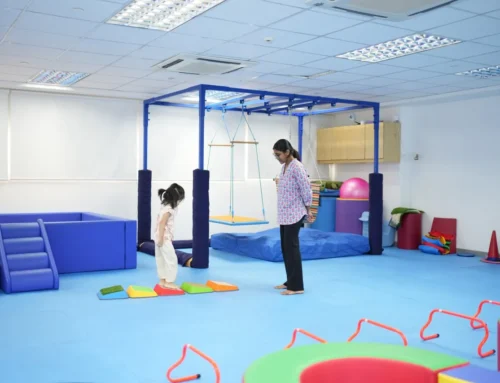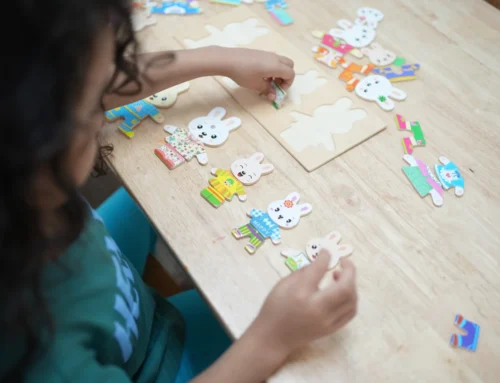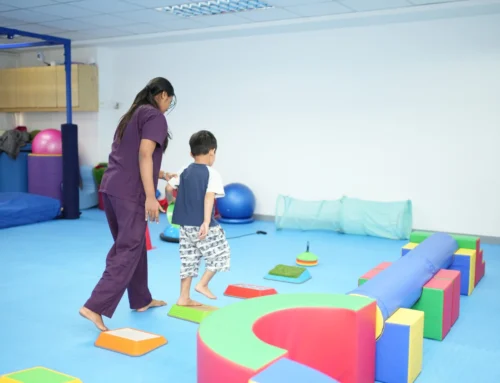Parents play a powerful role in supporting their child’s growth and development. While therapy sessions at OrbRom Center in Phnom Penh provide structured support, what happens at home between sessions is just as important. Home-based occupational therapy activities help children practice essential skills in natural, familiar environments — turning everyday routines into meaningful learning opportunities. With the right guidance, parents in Cambodia can create fun, effective ways to build motor, sensory, and cognitive skills right at home.
Why Home-Based Occupational Therapy Matters
Occupational therapy helps children develop the skills they need for everyday life — from buttoning shirts to focusing in class. When therapy strategies are continued at home, children gain more practice, consistency, and confidence.
Parents often ask how they can “do therapy” outside the clinic. The good news is that many occupational therapy activities require little to no special equipment. They can be incorporated into household routines, playtime, or outdoor adventures.
Families who continue therapy at home often see faster progress in fine motor skills, sensory regulation, and attention. To understand how therapy supports daily independence, visit Occupational Therapy Helps Children Achieve Independence.
Fine Motor Skill Activities You Can Do at Home
1. Playdough Play and Clay Molding
Rolling, pinching, and flattening playdough strengthens the small muscles in children’s hands and fingers — the same muscles used for writing and self-care tasks. Try hiding small beads or buttons inside the dough for your child to find; this builds grip strength and coordination.
Learn more about how this simple activity supports learning in Developing Fine Motor Skills Through Clay Play: A Key Focus of Occupational Therapy in Phnom Penh.
2. Pegboards, Clothespins, and Beading
Use household materials like clothespins, beads, or even paper clips. These tasks improve pincer grasp, eye-hand coordination, and visual tracking — skills that are essential for classroom writing and cutting activities.
3. Kitchen Helpers
Cooking provides endless fine-motor opportunities: stirring, pouring, opening containers, and washing fruits. Involving children in food prep builds hand strength and planning skills while boosting confidence and independence.
Sensory Activities for Calming and Focus
1. Heavy Work at Home
Children who seek movement or appear restless often benefit from “heavy work” — activities that engage large muscles and provide deep pressure input. Simple tasks like pushing laundry baskets, wiping tables, carrying groceries, or watering plants can calm the body and improve attention.
Explore more about sensory benefits in Sensory Diet Activities for Calming Overstimulated Children.
2. Sensory Bins and Exploration Play
Create sensory bins using rice, beans, or sand. Hide small toys for your child to dig and find, helping improve tactile tolerance and fine-motor coordination. Sensory play supports both emotional regulation and focused attention — especially for children with sensory processing challenges.
3. Obstacle Courses and Movement Games
Build a simple obstacle course using chairs, cushions, and ropes. Encourage crawling under, jumping over, or balancing along a line. These fun activities build balance, body awareness, and motor planning — key components of occupational therapy.
Cognitive and Executive Functioning Activities
1. Sorting and Sequencing Games
Sorting toys by color, size, or shape helps with visual perception and organization. Sequencing activities — like retelling a short story or arranging picture cards in order — improve working memory and planning skills, both crucial for school readiness.
To learn more about cognitive growth, read Building Working Memory and Attention Through Occupational Therapy.
2. Visual Schedules and Routines
At home, consistency is key. Create a visual schedule that outlines morning and bedtime routines using pictures or icons. It helps children anticipate what comes next and promotes independence. Parents can find step-by-step guidance in Using Visual Supports and Schedules to Improve Task Initiation and Planning.
Making Home Practice Fun and Consistent
Children learn best when they’re having fun. Occupational therapists encourage parents to embed therapy goals into natural routines rather than adding extra “homework.” Here are a few examples:
-
During bath time: Encourage squeezing sponges and pouring water for sensory input.
-
Before bedtime: Include deep-pressure hugs or gentle stretches for relaxation.
-
In the morning: Practice dressing skills and organizing school items to build independence.
Repetition and routine make these activities most effective. A few minutes each day can make a big difference in building focus, coordination, and confidence.
For additional ideas, explore Building Confidence Through Occupational Therapy.
Partnering with Therapists at OrbRom Center
At OrbRom Center in Phnom Penh, we guide parents in creating structured home programs that complement clinic sessions. Our occupational therapists provide personalized home activity sheets, progress monitoring, and family coaching sessions to ensure consistency between therapy and everyday life.
Many families also combine home-based strategies with speech therapy or special needs intensive intervention to maximize developmental gains. This collaborative approach helps children generalize skills across environments — school, home, and community.
Conclusion: Small Steps at Home, Big Progress in Life
Home-based occupational therapy activities empower parents to be active partners in their child’s development. Through simple, everyday routines, children can strengthen fine-motor skills, sensory regulation, and attention — all essential for independence and learning.
At OrbRom Center in Phnom Penh, we believe that growth doesn’t stop when therapy sessions end — it continues at home, one meaningful activity at a time. Visit our Occupational Therapy page or schedule an assessment to learn how we can support your child’s journey toward success.
We are the only Preschool specialized on children with special needs in PhnomPenh.
- Internationally qualified teachers
- Cambodia’s largest sensory room
- Outdoor swimming pool
- Covered outdoor playground
📞 Phone: 077.455.993
Telegram Link: https://t.me/OrbRom





